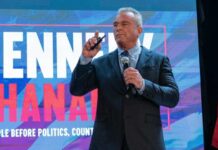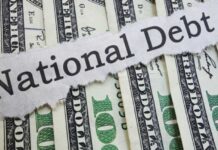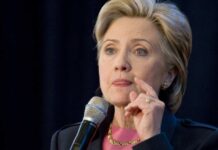
The Biden administration’s stance on banning menthol cigarettes is doing a 180, opting to delay the decision. The White House’s hesitation might have less to do with public health and more with the palpable fear of losing the minty-fresh breath of Black voter support. After all, why rush to ban something that accounts for a third of U.S. cigarette sales? The answer might be blowing in the (political) wind.
Menthols reign supreme, making up over a third of U.S. cigarette sales, with Black and Hispanic communities being the primary consumers. The statistics are telling: in 2020, a staggering 81% of Black smokers favored menthols, compared to 30% of white smokers and 51% of Hispanic smokers.
Opposition to the ban isn’t just smoke and mirrors; it’s a legitimate concern for some Black leaders who fear it could fuel the illicit cigarette market and lead to racial profiling by law enforcement. Organizations like the ACLU and members of the Congressional Black Caucus echo these sentiments.
Meanwhile, Secretary Xavier Becerra has become the poster child for governmental foot-dragging, citing the need for “more conversations” about the ban. Because what’s a few more years of lung damage in the grand scheme of election cycles?
Why the foot-dragging? Becerra believes that further dialogue is needed, citing the significant feedback from civil rights and criminal justice groups. How much time? According to Becerra, it “will take significantly more time.” But the question remains: at what cost?
Initially heralded as a move to curb youth initiation and reduce health disparities, the proposed ban on menthol cigarettes has hit a snag. The FDA’s anticipated rule was put on ice as the White House grappled with its political implications and an overwhelming need for more votes against former President Trump. Of course, it doesn’t help that recent polls show Biden’s support among Black voters waning, particularly among Black men, raising questions about the administration’s priorities.
Susan Rice, Biden’s former top domestic policy adviser, minced no words, accusing the administration of endangering Black lives with its delay tactics.
The tobacco giants are having a field day. Altria and Reynolds American argue against the ban, fearing “unintended consequences”—like maybe people quitting smoking? They are disputing the FDA’s findings on menthol’s health impacts. Reynolds, the maker of Newport, the leading menthol brand in the U.S., has even bankrolled opposition efforts.
The roots of menthol’s popularity in Black communities run deep, with decades of targeted marketing and insidious advertising tactics. Rep. Yvette Clarke calls for accountability, urging the government to address the tobacco industry’s harm while expressing concerns about potential biases in enforcement.
However, not all Congressional Black Caucus members are on the same page. Rep. Robin Kelly voices disappointment in the FDA’s backtrack, emphasizing the ban’s potential to save lives. It’s a clash of perspectives in the fight for public health.
Former FDA official Mitch Zeller underscores the scientific consensus: banning menthol cigarettes could yield significant health benefits. A study out of the University of Waterloo paints a promising picture, projecting millions of smokers, including hundreds of thousands of Black smokers, quitting within months of a ban.
While some states and municipalities have imposed bans, the federal government’s wavering stance leaves much to be desired. With Canada, the EU, and even individual U.S. states taking decisive action, the Biden administration’s indecision speaks volumes.
And there you have it: the administration’s master class in dodging decisive action. While states like California and Massachusetts blaze ahead with their own bans, the federal government’s resolve seems to have gone up in smoke. As for the health benefits of a nationwide menthol ban? Well, that’s just another puff of wishful thinking.















